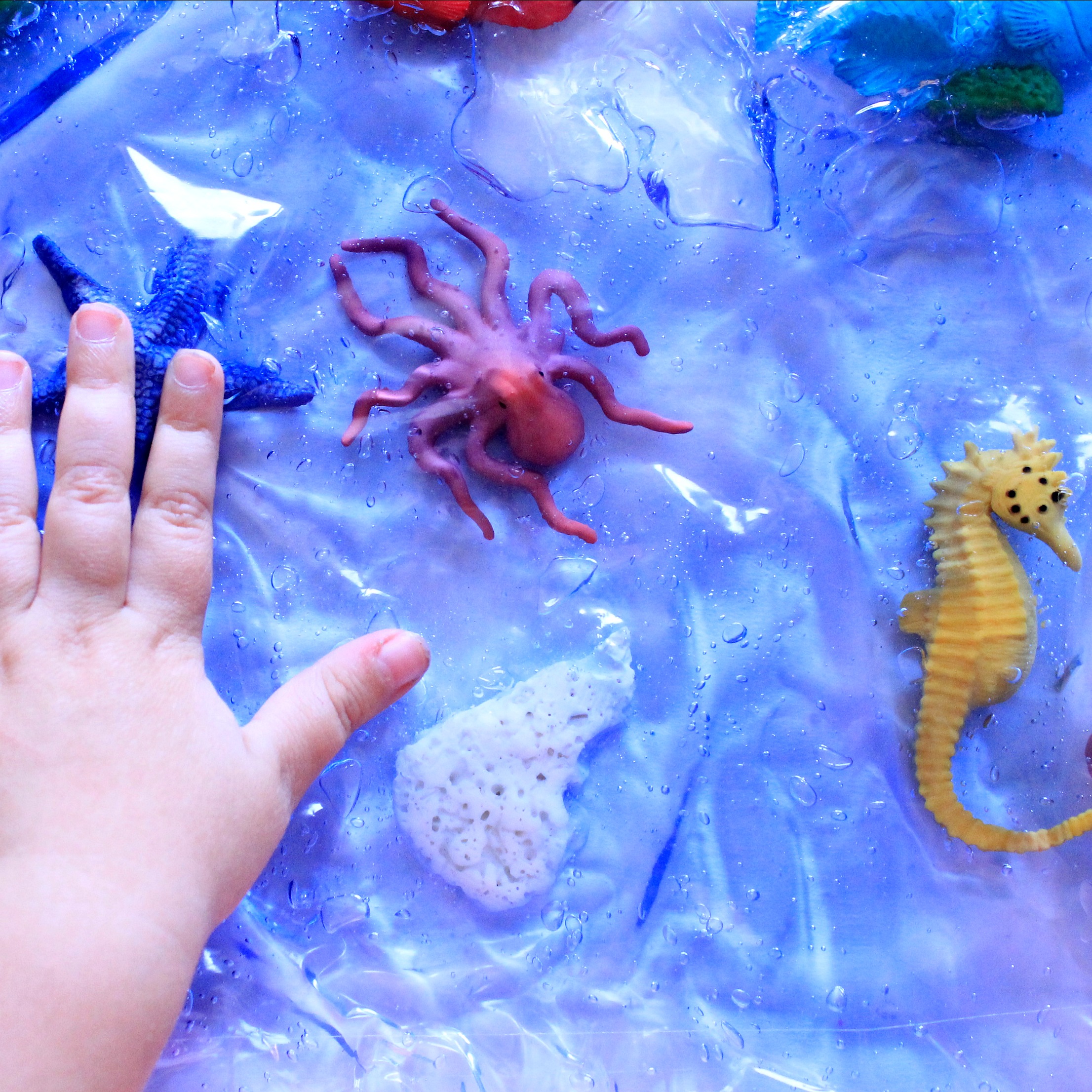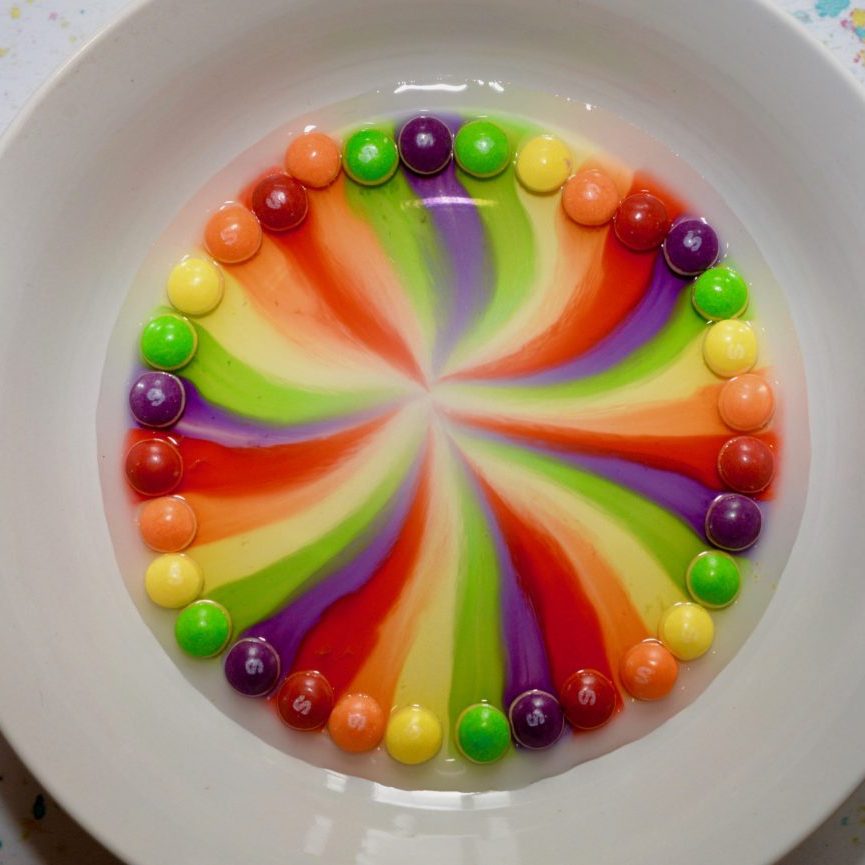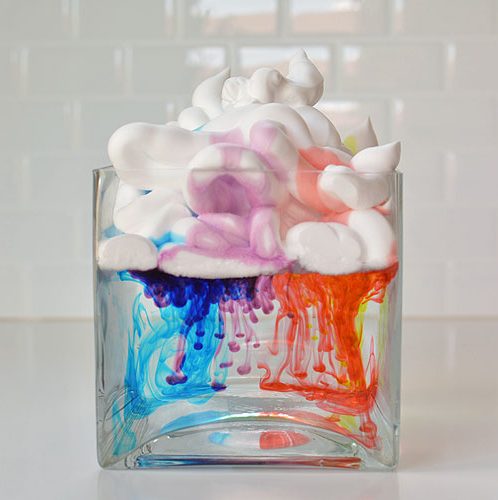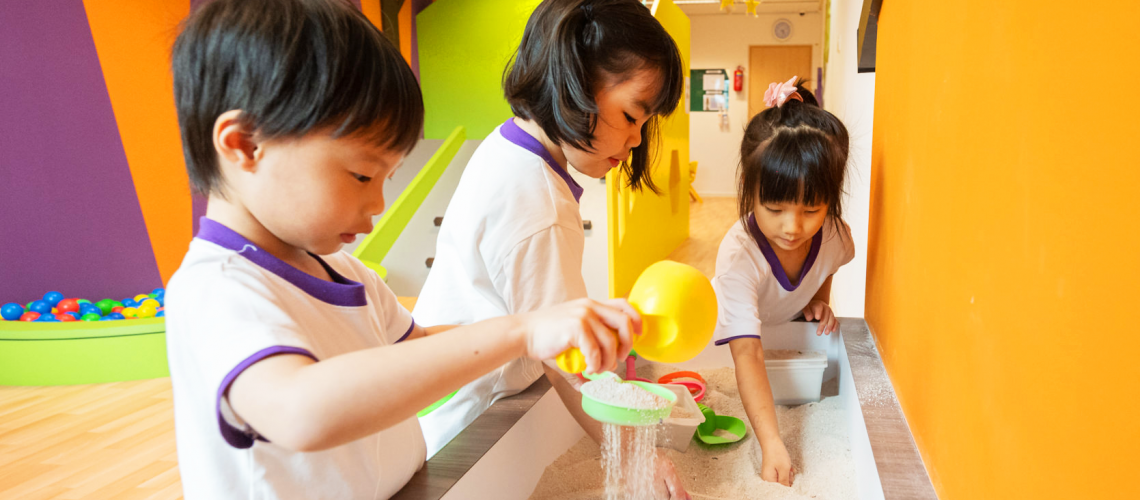Do you ever wonder why babies and toddlers touch everything, and put things in their mouths? Or why young children make funny noises and experiment how the world sounds with their fingers stuck in their ears? Simply put, children are natural scientists – investigating, exploring, discovering and experimenting in their environment. From the day they are born, children learn by exploring the world via their multiple senses. This also explains why kids like to spin round and round in circles until they’re dizzy. These are called “sensory discovery”.
When people think of sensory play, they picture sandboxes and water tables, or children playing with clay and playdough. But sensory isn’t all about touch, it is also about the other four senses. For instance, the colours in paint during a colour-mixing experiment, the sharp scent and taste of vinegar in a science experiment, or the smells arising during a scratch-and-sniff exercise. Loud, soft, sweet, bitter, sticky, slippery, gooey, bumpy… that’s what sensory experiences are made of. These activities are important for brain development. When children can use multiple senses to accomplish a task, they learn more from the experience and retain more information along the way.
Just how valuable is sensory play in school and at home?
- Life skills
A big part of sensory play is the life skills that come with it. When playing with a sensory bin — typically a large container filled with beads, shredded paper, coloured rice, or other carefully selected materials to stimulate the senses — children develop skills like scooping, pouring and dumping. They learn different ways of filling up containers of various shapes and sizes. - Pre-math skills
As children scoop and pour items like water, jello, beans or sand, they are learning about measurement, estimation and spatial awareness. And the more they practise, the more confident and accurate they become in the transferring skills between containers.
- Creativity
During sensory play, children may engage in pretend play as they imagine the situations and determine the tasks. They can become more creative as they explore with their senses, as well as develop linguistic, cognitive, visual spatial, social and emotional skills.
- Fine motor skill development
Compare playing at a sandpit and an iPad. It isn’t the same. Think of all the work children do with their hands during sand play as they move their fingers, grip their materials and coordinate with their eyes to make it all happen. Sensory play builds motor skills in a way that technology simply cannot accomplish as well. - Self-control
Sensory bins are meant to be messy, but they give children an opportunity to follow rules like ensuring the items remain inside the bin or not putting anything in their mouths. Sensory bins are a safe place for children to learn self-control where they can play with something exciting but to remain in control of their bodies.
Here are some sensory activities that we have done in our classes and which you can do at home with your children:

Sensory Bags
Depending on your preferred theme, place tiny toys in a zip lock bag, add some water and blue food colouring. Remove the air from the zip lock bag and tape the opening to make sure nothing spills.

Mixing Colours of the Rainbow
Place alternate colours of skittles on a white plate and carefully pour water. Watch as the colours dissolve and meet in the centre.

Rain Cloud Experiment
Fill 3/4 of a transparent drinking glass or a jar with cold water. Load a layer of shaving foam on top. Place several drop of food colouring onto the shaving foam. Watch as the colours go through the form and into the water, just like rain.
The beauty of sensory play is that it is not only limited to school time. The truth is, sensory play ideas are all around us. It is limited only by your imagination. In GUG Preschool, exciting discovery sessions are featured frequently in the curriculum and conducted in a dedicated Sensory Play Room. Many of our sensory activities during class can be replicated at home. We highly encourage getting children to showcase the sensory activity at home, which would boost their confidence as they show what they have learnt in class and also explain the activity as they go along. Doing so supports their language development and continues to build upon their scientific thinking and problem solving skills. Although simple play and learning, sensory play definitely helps build good foundations for further developmental and academic skills.








